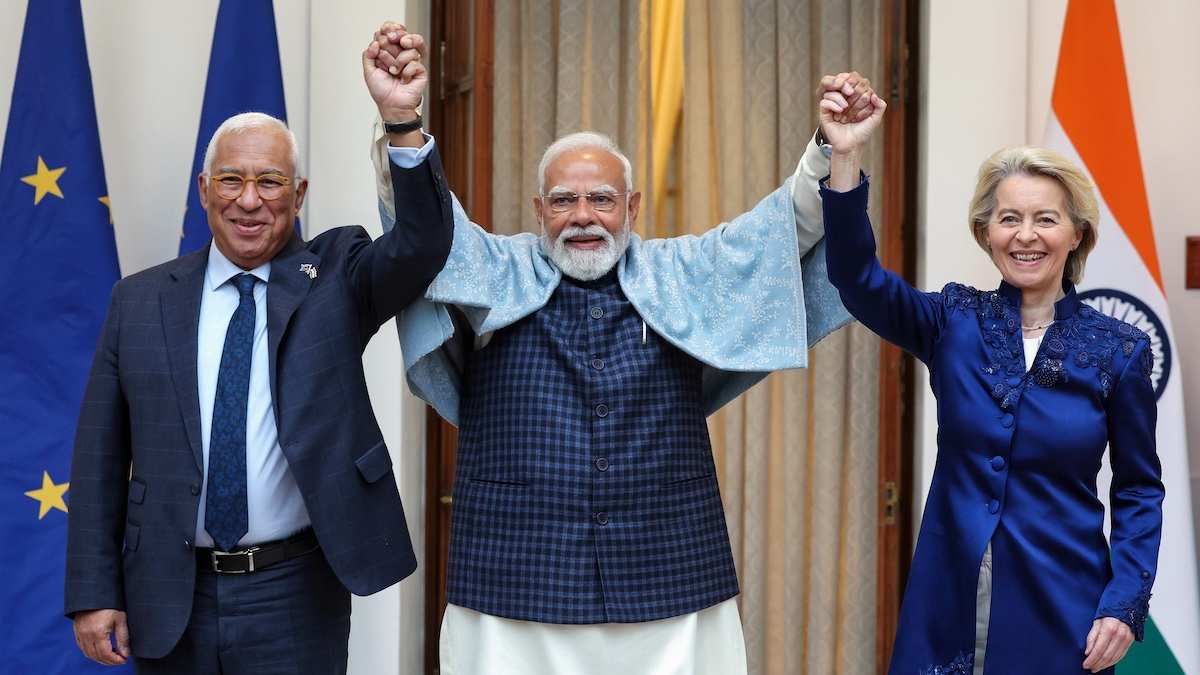News
February 05, 2019
5.4 billion: Last week, Indian Prime Minister Narendra Modi unveiled a $5.4 billion package to shore up popular support ahead of a crucial national election later this year. The funds include $2.8 billion in direct payments to small farmers and $2.6 billion in tax breaks for the middle class.
10,500: In 2017, the production of opium, the major ingredient in heroin, in Afghanistan increased by 65 percent to 10,500 tonnes, the highest total recorded by the UN Office of Drugs and Crime since it began collecting data in 2000. That's in part because the Taliban has boosted production of the lucrative crop as it's expanded control over Afghan territory.
50: A 50 percent increase in attacks by Israeli settlers on Palestinians, their property, and Israeli security forces over the past year threatens to plunge the febrile West Bank into deeper instability, Israel security officials worry.
1: Yesterday, Pope Francis became the first pontiff to ever visit the Arabian Peninsula, arriving in the United Arab Emirates to take part in an inter-religious conference. He also led a Mass for members of the UAE's sizable Catholic expat community, which comprises almost 10 percent of its population.
More For You

Prime Minister Narendra Modi, with President of the European Council António Luís Santos da Costa, and President of the European Commission Ursula von der Leyen, at Hyderabad House, in New Delhi, India, on Jan. 27, 2026.
DPR PMO/ANI Photo
On Tuesday, the world’s largest single market and the world’s most populous country cinched a deal that will slash or reduce tariffs on the vast majority of the products they trade.
Most Popular
Sponsored posts
Five forces that shaped 2025
What's Good Wednesdays
What’s Good Wednesdays™, January 28, 2026
Mexican President Claudia Sheinbaum Pardo stands alongside Canadian Prime Minister Mark Carney and US President Donald Trump during the 2026 World Cup draw at the John F. Kennedy Center for the Performing Arts in Washington, D.C., on December 5, 2025.
Deccio Serrano/NurPhoto
Canadian Prime Minister Mark Carney has repeatedly tussled with US President Donald Trump, whereas Mexican President Claudia Sheinbaum has tried to placate him. The discrepancy raises questions about the best way to approach the US leader.
Fighters of the Qassam Brigades, the armed wing of the Palestinian Islamist Hamas movement, attend a rally marking the 35th anniversary of the group's foundation in Gaza City on December 14, 2022.
Photo by Majdi Fathi/NurPhoto
10,000: The number of Hamas officers that the militant group reportedly wants to incorporate into the US-backed Palestinian administration for Gaza, in the form of a police force.
Walmart is investing $350 billion in US manufacturing. Over two-thirds of the products Walmart buys are made, grown, or assembled in America, like healthy dried fruit from The Ugly Co. The sustainable fruit is sourced directly from fourth-generation farmers in Farmersville, California, and delivered to your neighborhood Walmart shelves. Discover how Walmart's investment is supporting communities and fueling jobs across the nation.
© 2025 GZERO Media. All Rights Reserved | A Eurasia Group media company.